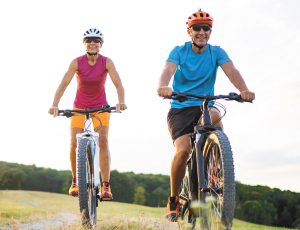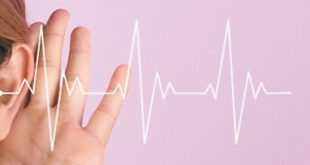

They concluded that the results indicate that poor flexibility is associated with greater age-related arterial stiffening. The association was independent of cardiorespiratory fitness and muscular strength. These findings suggest the possibility that flexibility may be a predictor of arterial stiffening, independent of other components of fitness.
Exercise and flexibility are highly important when it comes to overall health, particularly to prevent or improve cardiovascular conditions. Incorporating fitness and movement along with stretching is critical, especially as we age. It’s never too late. You can walk, swim, play pickleball, or do chair aerobics if you are not able to move freely due to balance issues or other conditions.
Getting 30-minutes of exercise in at least 3 to 5 times per week is essential.
Exercising outdoors
For those who love to be outdoors, please make sure to exercise or do yard work when it’s cooler such as early morning or later in the evening. Drink plenty of water to rehydrate yourself before, during, and after your workout. Electrolyte enhanced water is a good idea since it will replenish your system properly.
What type of exercise is best?
It depends on your fitness level, but it’s always helpful to do what you love. If you’re an avid bicyclist or tennis player, then finding the time to do those activities will keep you more motivated than if you walk on a treadmill. However, many people love going to the gym and using the machines or working out at home via a YouTube workout channel. Whatever is going to keep you interested in exercising is the key to your commitment level.
Don’t forget to add in time for stretching. It’s best to stretch after a warmup and then again when finished with your workout routine. Perhaps take up Yoga or Pilates to increase your flexibility as an add-on to your cardiovascular workouts.
Exercise lowers blood pressure, LDL and increases HDL, circulation, and oxygen uptake in the blood.
If you or a loved one has any of the venous symptoms or risk factors discussed above, you must seek medical attention immediately. Making an appointment with a vascular surgeon specializing in venous disease is critical.
To schedule an appointment with our board-certified vascular surgeons, call (239) 344-7061 or visit https://gulfcoastsurgeons.com.
Call Vascular & Vein Center at Gulfcoast Surgeons today at (239) 344-7061.
Vascular & Vein Center
877-LEG-PAIN
gulfcoastsurgeons.com
Fort Myers
8010 Summerlin Lakes Dr., Suite 100
Fort Myers, Florida 33907
Cape Coral
1003 Del Prado Blvd., Suite 303
Cape Coral, Florida 33990
Bonita Springs
24301 Walden Center Dr., Suite 102
Bonita Springs, Florida 34134
 Southwest Florida's Health and Wellness Magazine Health and Wellness Articles
Southwest Florida's Health and Wellness Magazine Health and Wellness Articles

